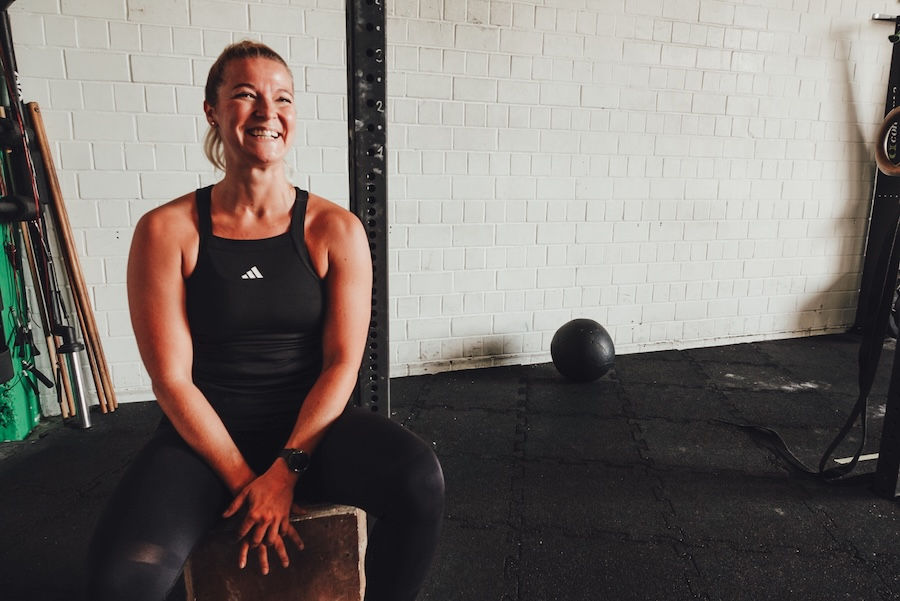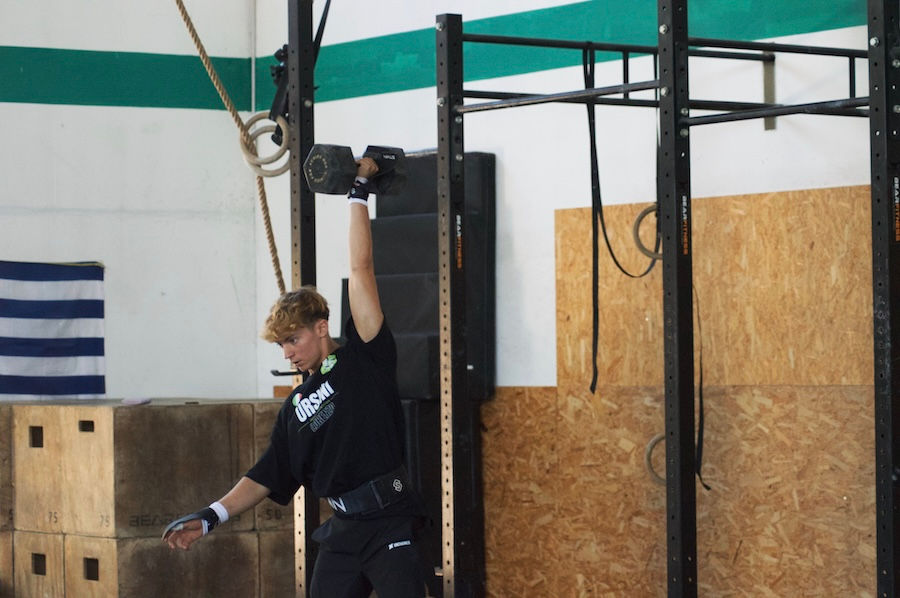Circadian Rhythm: How Your Internal Clock Affects Your Training
- Lin ny
- 3 days ago
- 7 min read
You probably know those days when you can hardly get going in the morning, yet suddenly find yourself wide awake late at night. Other days are exactly the opposite: you feel awake and active early on, but by the afternoon, you somehow run out of steam. This often seems random—but it isn't.
The pattern behind this is called the circadian rhythm. This is nothing more than the internal clock that your body has been following for millions of years.
Sleep, energy, hunger, focus, mood, performance—everything follows a daily ups and downs.
Once you understand this rhythm, you can organize your daily life much more easily. And train even smarter.
What does the circadian rhythm mean for me?

You hear about it all the time, but hardly anyone can explain what this rhythm actually is. Yet you feel it every day without even realizing it.
The circadian rhythm is a 24-hour cycle that controls your body. It influences when you wake up, when you get tired, when you are hungry, and when your mind works best. It regulates your body temperature, your hormones, your digestion, and even your mood.
In short: Your body follows a clear pattern that repeats itself every day. If you go with this rhythm, you will have more energy. If you ignore it, your body will constantly work against you.
How does the circadian rhythm work?

To help you understand why you function differently in the morning than in the evening, let's take a quick look at how your body controls this internal clock.
At the center of it all is a small control center in your brain, often referred to as the “internal clock”. It responds primarily to light.
As soon as light hits your eyes in the morning, your body starts its daily routine: waking up, raising your temperature, activating your metabolism, and increasing your concentration.
In the evening, it works the other way around. Less light signals to your body that it's time to wind down. Your internal clock slows down your activity level, your body temperature drops slightly, and hormones such as melatonin signal to your nervous system that it's time to relax.
The most important processes that carry your rhythm run automatically:
Cortisol rises in the morning to get you going.
Melatonin rises in the evening to make you tired.
Your body temperature changes throughout the day, which affects your mood, focus, and athletic performance.
Digestion, heart rate, and metabolism follow the same rhythm, making you feel more alert or productive at certain times.
As you can see, your body operates on a 24-hour cycle and adjusts everything accordingly—energy, sleep, hunger, focus, exercise. The better this rhythm works, the more stable your everyday life feels.
Why does the circadian rhythm have such a strong influence on my energy levels?
Your energy level is no coincidence. Your rhythm determines when your body is ready to perform—and when it would rather take a break.
There are typical phases of the day that many people share, even though everyone ticks differently:
In the morning, a clear burst of energy
In the late morning, the first mental high
In the afternoon, the best strength and coordination
In the evening, a natural decline as the body winds down
If you learn to recognize these waves, you can manage your daily life much more easily. You will work with greater concentration, train more effectively, and feel less tired—without needing more sleep or caffeine.
When is the best time for me to exercise?

The question of the “perfect time to exercise” sounds as if there is a universal answer. But there isn't. There is only the time when your body functions best – and that is closely linked to your circadian rhythm.
As a general rule, your body warms up in the morning, stabilizes during the day, and cools down again in the evening. However, how strongly you feel these phases varies from person to person.
That's why it's worth knowing the differences and observing yourself.
Morning workouts – a good idea if your day is otherwise full
Training in the morning often feels harder because your body temperature and nervous system are not yet fully warmed up. But training in the morning has one advantage: you're sure to get it done. No stress at work, no busy evening, no excuses.
Many even notice that after a few weeks they get used to it and become surprisingly productive in the morning. This is because the rhythm adapts to fixed habits.
Well suited for:
light endurance training
short, intense strength training
mobility, core, technique work
Less ideal for:
maximum strength attempts
exercises requiring a high degree of coordination
Training at midday – your natural energy midfield
Around lunchtime, many people have a small window of productivity before the first slump sets in. It is not as powerful as the afternoon, but more alert than the early morning.
Ideal if you take short lunch breaks or work in shifts. Your nervous system is already active, your body is warm, and you are not yet mentally exhausted.
Well suited for:
light to moderate strength training
short interval formats
cardio sessions
Afternoon training—for many, the strongest performance window
This is the time when your body is particularly ready: your temperature, coordination, and reaction time are at their daily peak. Your nervous system is working smoothly, you are more flexible, and you have enough energy from your previous meals.
If you want maximum performance—whether strength or endurance—this is usually the best time of day.
Well suited for:
Strength training with heavy weights
Demanding techniques
Intensive endurance training
The reason: your body works here in an optimal combination of stability, energy, and alertness.
Training in the evening – perfectly possible, but with tact
Many people exercise in the evening because it's the only time they have free. That's fine—as long as you make sure your workout doesn't end too late. Intense exercise shortly before bedtime keeps some people awake longer because it raises their body temperature and stimulates their nervous system.
If you train in the evening, make sure:
not to eat too late
to leave some time between training and going to bed
to focus on strength rather than extremely high intensity if you find it difficult to wind down
Well suited for:
Strength training
Technical work
Moderate endurance training
What if I only have a certain amount of time?
Don't worry—you don't have to “optimize.” Your rhythm will adapt to you. It's not important when you exercise, but that you do it regularly. Your body loves repetition.
Do you always train in the morning? Then your system will gradually adjust to that. Late evenings? Same thing. The best time to train is the one you can stick to long-term. Your circadian rhythm isn't an excuse—it's a tool.
How can I find my own rhythm—without complicated biohacks?

Many people believe they need apps, trackers, or supplements to understand their circadian rhythm. You don't. Your body shows you quite clearly how it ticks—you just have to start paying attention. And that's exactly the point: you don't find your rhythm by “optimizing” it, but by recognizing it.
What you should pay attention to in everyday life
Before you change anything, observe yourself first. Like a little internal audit. Ask yourself the following questions for a few days:
When do I naturally feel tired?
When do I feel clear-headed?
When am I hungry—and when do I eat just because it's “time”?
When do I feel physically strong?
When does my body automatically switch to rest mode?
These observations take no time or effort. But they immediately show you where your natural rhythm lies—and where you constantly override it.
You will notice that your body sends clear signals. Most people ignore them because everyday life, appointments, and habits are loud.
Mini experiment for 7 days
If you want to know more, take a week and do a small, simple experiment. Observe for 7 days:
When you go to bed and when you wake up: Don't just write down the times, but also how you feel. Do you wake up naturally or with an alarm clock? Do you collapse in the evening or are you actually still fit?
Your energy phases: Make a rough note of when you feel awake, when you feel tired, when you feel focused, and when you feel irritated. Most people discover patterns here that they had never noticed before.
How light, food, and exercise change your energy: A short walk in the morning? Usually noticeable immediately. A late, heavy meal? Often significant. Training at different times of day? Exciting to compare.
After a week, you will have a clear picture of which times suit you best, which routines support you, and where you are holding yourself back.
What if my circadian rhythm gets disrupted?
When your rhythm is off, you notice it pretty quickly. Sleep feels restless, your energy levels don't match your daily routine, and everything becomes a little more exhausting than it needs to be. This isn't due to a lack of discipline or willpower, but rather because your body is receiving conflicting signals.
Typical signs:
You sleep, but you don't wake up feeling refreshed.
Your energy levels seem “reversed”—tired in the morning, awake in the evening.
Your mind isn't working properly—it's harder to focus, and you get irritated more quickly.
Training feels tough, even though you're actually fit.
You get hungry at the wrong time, usually late in the evening.
The good news: a disrupted rhythm is not permanent. As soon as you give it clear signals again—light in the morning, less hustle and bustle in the evening, regular bedtimes—it will return relatively quickly. Your body wants to work in sync. You just have to help it find its way back.
Your natural rhythm makes all the difference
Knowing your circadian rhythm makes many things easier: sleep, energy, focus, and training. You don't have to do anything complicated—just observe how your body functions throughout the day and give it a little structure.
A clear rhythm is not a strict system, but rather a guide. It helps you make decisions that feel easier instead of slowing you down.
The better you understand it, the more natural your days—and your training—will be.




Comments